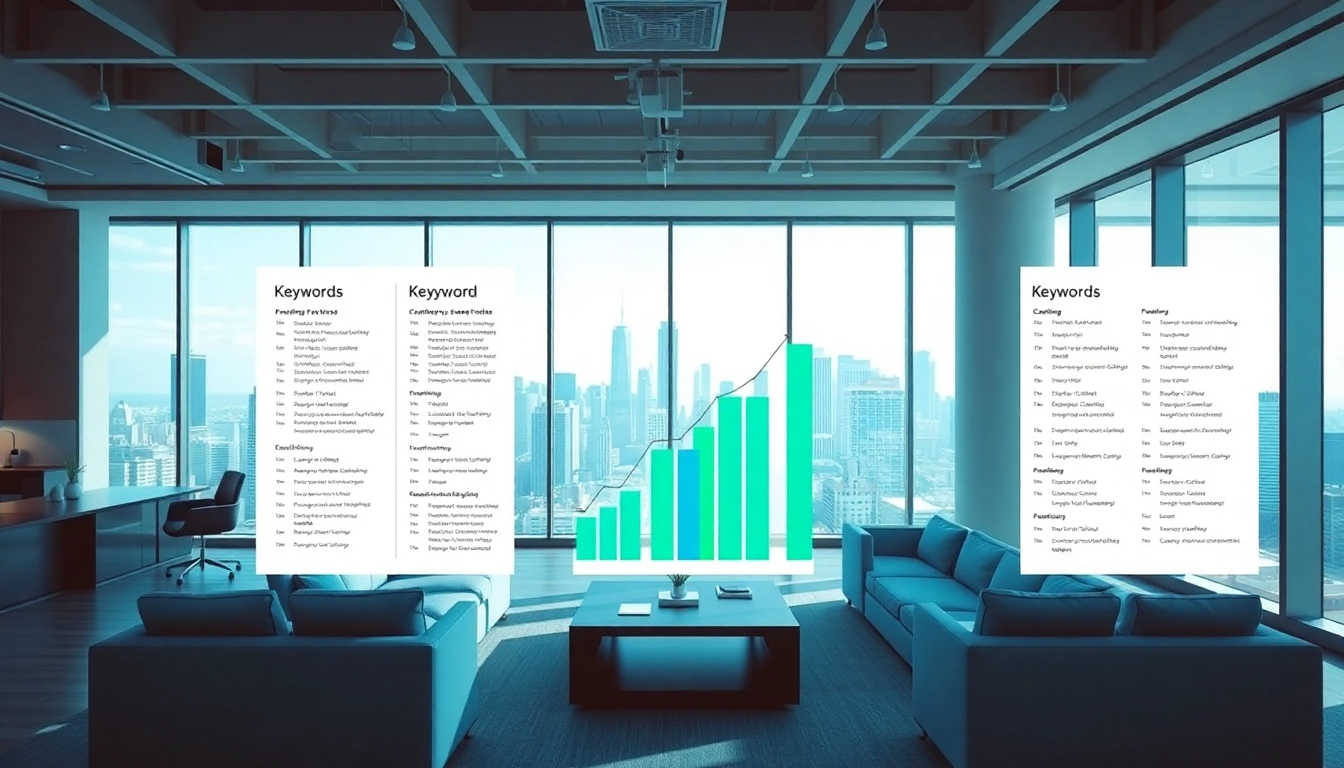
The Evolution of Branding in the Digital Age
In recent years, branding has undergone a significant transformation, moving from conventional methods to a digital-first approach. Traditional branding techniques relied heavily on visual aesthetics through logos, color schemes, and slogans, but the dawn of advanced technologies, especially artificial intelligence, has redefined these essentials. Today, businesses are leveraging AI-powered branding services to create, manage, and evolve their brands more efficiently and effectively than ever before. This evolution is not merely a trend but rather a necessity for companies aiming to thrive in the competitive digital landscape.
Understanding AI-Powered Branding Services
AI-powered branding services utilize machine learning algorithms and data analytics to enhance various aspects of brand identity and engagement. These services can create unique visual designs, streamline content creation, and optimize marketing strategies tailored to specific audience demographics. By employing AI, brands can harness real-time data to drive their branding decisions, allowing for a more individualized and adaptive approach, which traditional methods could hardly achieve. Additionally, with the growth of services such as AI-powered branding services that offer bespoke solutions, businesses can efficiently craft strategies that resonate more with their target audiences.
The Impact of AI on Traditional Branding
The integration of AI into branding has significant repercussions for how brands communicate and engage with consumers. Traditional branding focused primarily on one-way communication, where companies established their brands through static messages. In contrast, AI opens a two-way communication channel that allows brands to gauge reactions and adapt their strategies instantly. For instance, AI can analyze social media sentiments, search habits, and engagement metrics to provide insights into consumer behavior, enabling brands to pivot their messaging and offerings accordingly.
Key Benefits of Adopting AI Techniques in Branding
- Enhanced Personalization: AI algorithms analyze consumer data to create tailored marketing messages and product recommendations, fostering stronger brand loyalty.
- Efficiency and Cost Reduction: Automated processes reduce manual labor and streamline operations, ultimately decreasing expenditure and allowing for reinvestment into brand development.
- Real-time Analytics: Brands can now measure the effectiveness of their branding campaigns instantaneously, enabling agile marketing decisions.
- Creative Innovation: AI tools provide unique suggestions for logos, branding kits, and marketing content, pushing the creative boundaries for businesses.
How AI Can Transform Your Brand Identity
AI’s transformative potential in branding extends far beyond mere automation; it enables brands to rethink their identity entirely. By leveraging smart algorithms and expansive datasets, businesses can carve out distinctive brand identities that resonate with their audiences.
Creating Unique Visual Identities with AI Tools
AI tools can generate compelling visual elements that encapsulate a brand’s ethos. By analyzing consumer preferences, design trends, and even psychological color theories, AI can create logos and graphic designs that appeal specifically to the target demographic. Platforms like Looka, which offer AI-based logo design capabilities, allow businesses to produce stunning visual identities quickly and affordably, bypassing the traditional design hurdles that often require substantial time and resources.
Enhancing Brand Messaging through Personalization
In today’s market, consumers expect brands to speak directly to their needs and preferences. AI facilitates this through personalized messaging, which can be crafted based on previous interactions, purchasing patterns, and demographic data. For instance, AI-driven tools can generate tailored content for social media campaigns that resonate with specific user groups, improving engagement and encouraging brand advocacy.
Case Studies: Successful AI Branding Campaigns
To illustrate the power of AI in branding, consider the following case studies:
- Sephora: The cosmetic giant harnesses AI to provide personalized recommendations to its customers using chatbots and mobile applications, leading to increased customer satisfaction and sales.
- Netflix: By employing AI to analyze viewing habits and preferences, the streaming platform effectively curates personalized recommendations, significantly enhancing user experience and engagement with the brand.
- Coca-Cola: Utilized AI to design tailored marketing campaigns based on regional consumer preferences, resulting in enhanced relevance and engagement across different markets.
Choosing the Right AI-Powered Branding Service
With a wide array of AI branding solutions available, selecting the right service can be daunting. Businesses must consider several factors to ensure they choose a platform that aligns with their needs and objectives.
What to Look for in AI Branding Platforms
- User-Friendly Interface: An intuitive design ensures that teams can easily navigate the platform without extensive training.
- Customization Options: Look for platforms that offer the ability to tailor outputs based on specific brand needs or audience segments.
- Analytics Capabilities: Robust reporting features should provide insights into campaign performance and consumer behavior analytics.
- Integrations: Consider platforms that seamlessly integrate with other essential marketing tools or software you are already using.
Comparative Analysis of Leading AI Branding Tools
A deeper understanding of several leading AI branding tools can help businesses choose the most suitable option:
- Looka: Renowned for its logo design capabilities, Looka also offers brand kits and automated social media content creation, making it a comprehensive choice for startups.
- uBrand: This platform specializes in brand design for entrepreneurs, offering innovative tools to assist in creating a cohesive brand identity.
- Canva: Although not strictly an AI tool, Canva’s features allow users to develop stunning graphics using a drag-and-drop interface, complemented by AI suggestions for improvements.
Evaluating Cost vs. Value in AI Branding Solutions
The cost of AI branding services can range significantly, from $100 to $5000 per month, depending on the features and capabilities. Companies must evaluate their budgets against the potential ROI and branding impact these services can provide. Making an informed decision here requires a clear understanding of the value these tools will bring compared to traditional methods.
Implementing AI Strategies into Your Branding Framework
Once an AI branding service has been selected, companies must effectively implement AI strategies into their branding frameworks to capitalize on their potential benefits.
Steps for Integrating AI into Your Branding Process
- Define Clear Objectives: Outline specific goals you aim to achieve with AI in your branding efforts.
- Train Your Team: Facilitate training sessions for staff to familiarize them with the new AI tools and processes.
- Pilot Programs: Run initial test campaigns to assess how well the AI tools perform before full-scale implementation.
- Monitor and Optimize: Continuously review performance metrics and adapt strategies based on analytics from the AI tools.
Common Pitfalls and How to Avoid Them
While implementing AI tools, several common pitfalls may arise:
- Neglecting Data Quality: Ensure that the data being fed into AI systems is accurate and relevant.
- Overlooking Change Management: Prepare your organization for the transitions required with new tools to minimize resistance.
- Failing to Measure Success: Utilize analytics to review the performance and efficacy of AI strategies regularly.
Measuring the Success of Your AI Branding Efforts
The effectiveness of AI branding initiatives can be measured through various metrics, including:
- Brand Awareness: Track increases in brand mentions and visibility across platforms.
- Consumer Engagement: Analyze likes, shares, comments, and interactions from campaigns.
- Conversion Rates: Measure the impact of branding on lead generation and sales.
The Future of Branding: Trends to Watch
As AI continues to advance, brands must stay ahead of emerging trends to remain competitive. The future of branding will likely revolve around deeper personalization, enhanced customer interactions, and innovative technology integrations.
Predictions for AI in Branding for the Next Decade
Experts predict that the next decade will see a substantial rise in the use of AI for dynamic content generation, with brands adapting their messaging in real time based on consumer data. This adaptability will challenge traditional marketing frameworks and necessitate a new approach to branding strategies.
Emerging Technologies and Their Impact on Branding
Technologies such as augmented reality (AR), virtual reality (VR), and further advancements in machine learning will dramatically influence how brands connect with consumers. For example, businesses may create immersive experiences that allow customers to engage with products before purchase, reducing the likelihood of returns and increasing satisfaction.
How to Stay Ahead in the AI Branding Landscape
To remain competitive, businesses must:
- Invest in continuous learning about emerging AI trends and technologies.
- Foster a culture of innovation within the organization to encourage creative problem-solving.
- Regularly review and adapt branding strategies in response to changing consumer behaviors and technology advancements.






